How To Make a Stellar LinkedIn Profile for Security Professionals
Edited 12-10-2023: Improved grammar and writing style using ChatGPT.
In today’s post, I will teach you how to craft a stellar LinkedIn profile. While this is tailored towards individuals in the information security industry, the advice is broad enough to benefit professionals across various fields.
👉 Want me to personally review and enhance your LinkedIn profile? Schedule a session with me for 1:1 mentorship on topmate
Part 1 - The Basics
In this section, we’ll cover the fundamental elements that every professional LinkedIn profile should include.
Profile Picture
This one is self-explanatory – have a high-quality headshot of yourself. You don’t need to hire a professional photographer or invest in a high-tech camera. Grab a colleague or friend (perhaps another job seeker) and take a few aesthetically pleasing photos of each other.
Additional tips:
- Say cheese! A smile will make you appear more friendly and approachable. No need to practice your mug shots…
- Avoid busy backgrounds or having other people in your photo; this may confuse the recruiter.
- Try the portrait mode on iPhone to blur the background and make yourself stand out!
- You don’t have to wear a black hoodie just because you’re in infosec ;)
Resources
Banner
The banner image isn’t as crucial as the profile picture (obviously). However, it can still significantly impact your profile’s overall appeal. You can practically use anything you want, though I advise against a skyline of your city – it’s overused and doesn’t convey much about you as an individual.
LinkedIn offers several pre-built banners that you can choose from. These are better than the default banner, which is rather soulless.
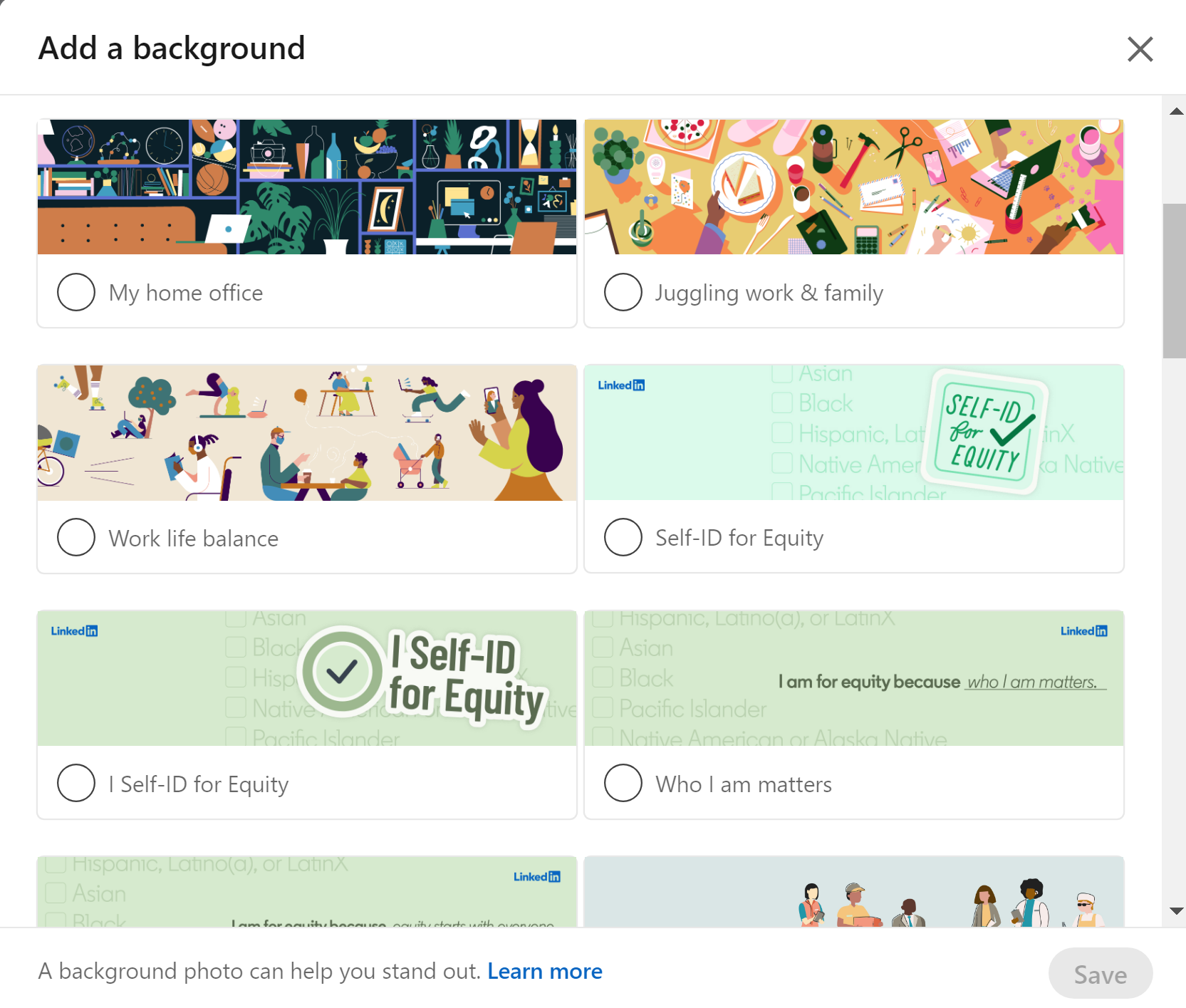
I recommend selecting a banner related to your career field or creating a custom one. You can easily make a custom banner in Canva.
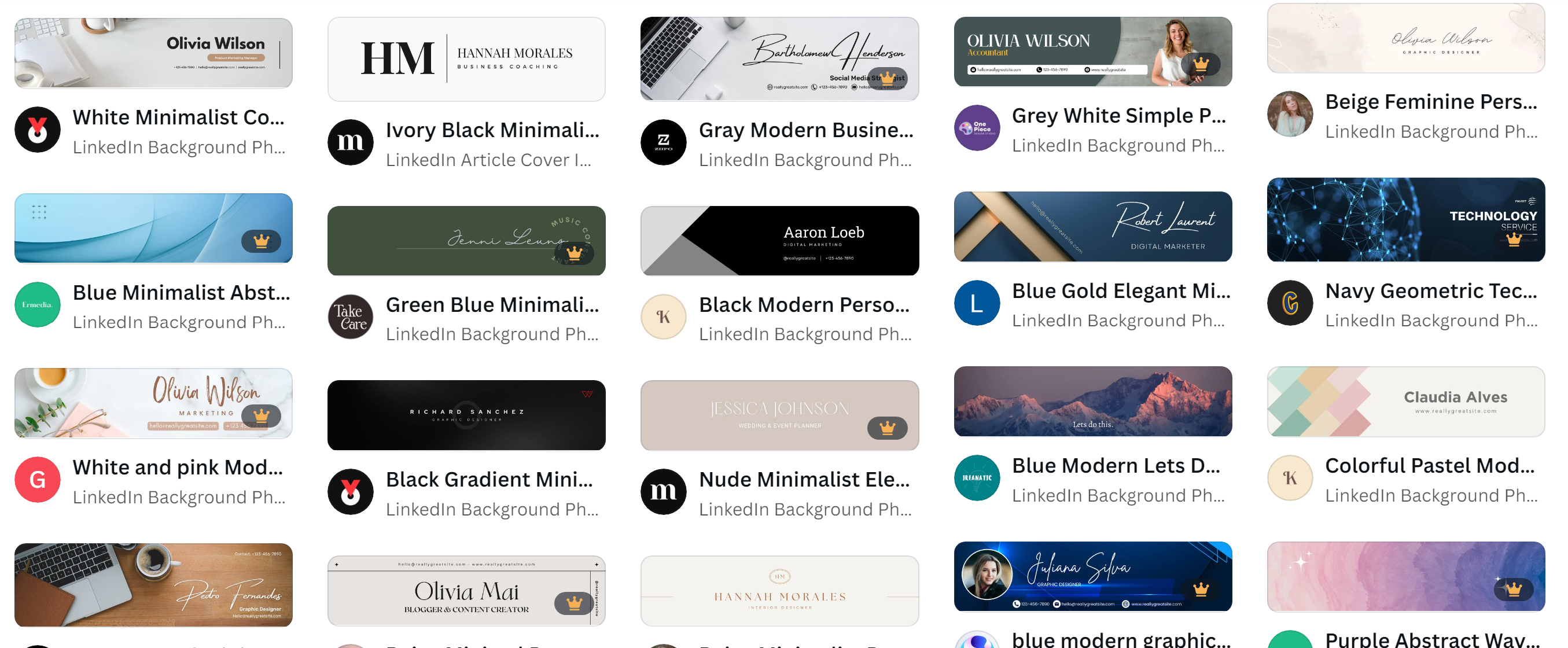
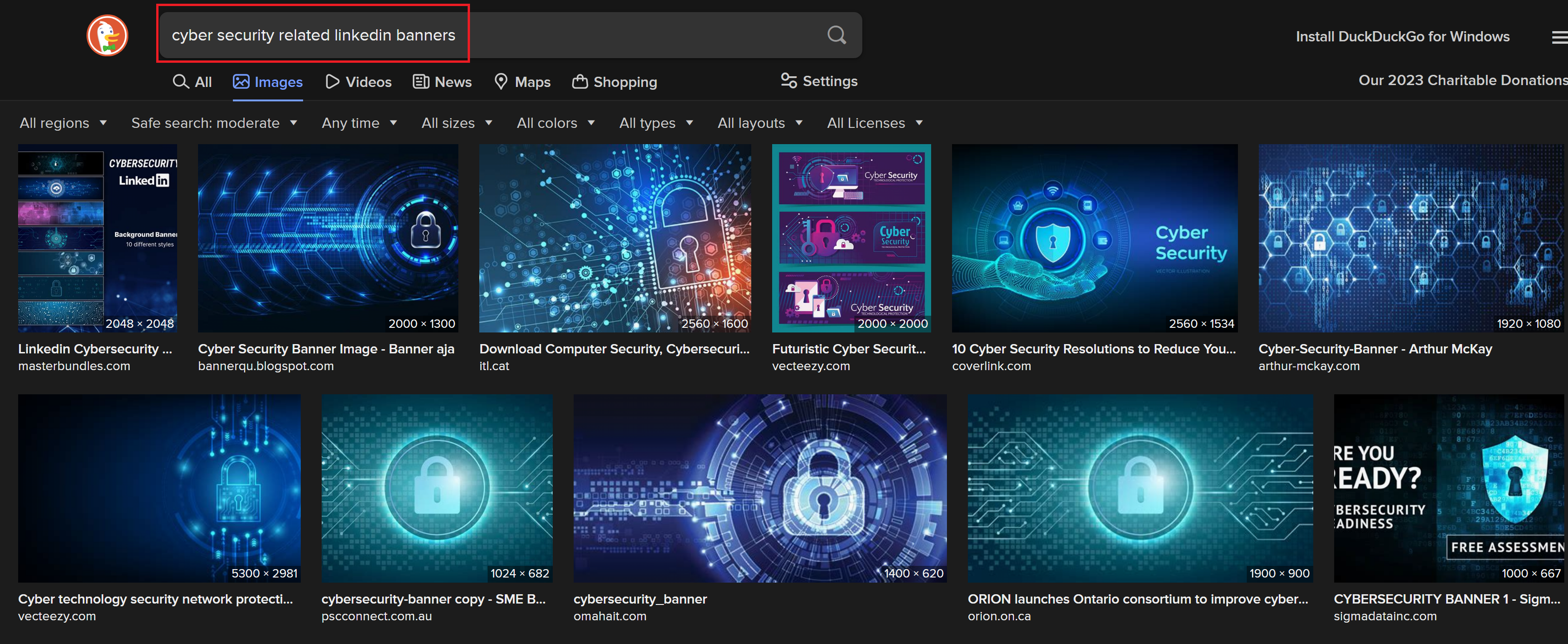
Resources
Headline
Your headline should briefly describe the job you want and your key skills. LinkedIn offers several pre-built banners that you can choose from. These are better than the default banner, which is rather soulless.
If you’re struggling to find keywords, pull some words or phrases from relevant job descriptions.
Example headlines:
- Offensive Security Engineer | OSCP | Content Creator
- Cyber Security Analyst | GCFA | Open Source Software Advocate
- Bug Bounty Hunter and Security Researcher | Making the Internet a safer place
Summary / About
This is your elevator pitch. Add a couple of paragraphs summarizing your professional work experience and accomplishments. Like a resume, there’s more than one correct way to write this. Find a profile whose summary section you like and mimic their layout.
I prefer a first-person narrative, but others prefer the third person. Here’s mine:
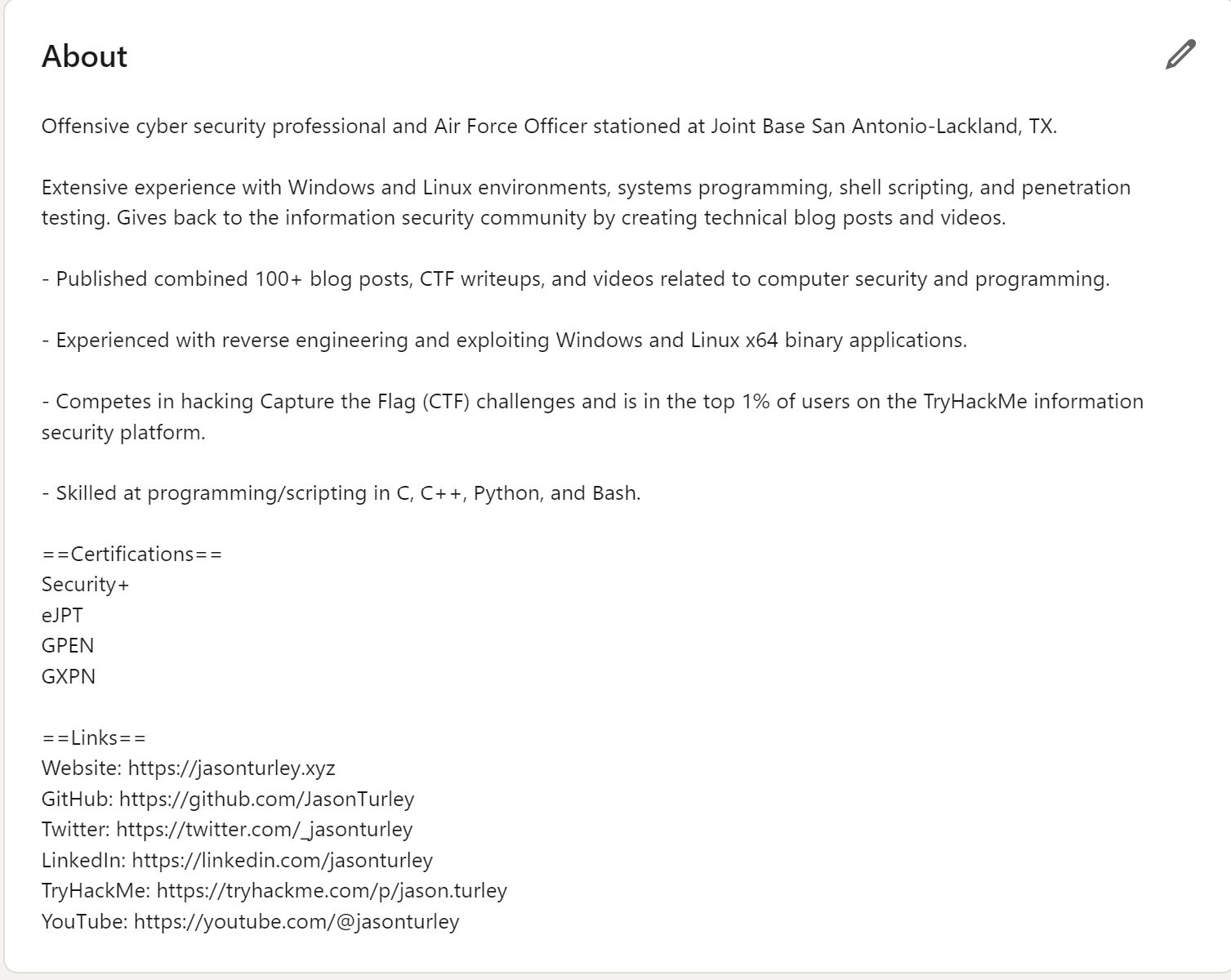
Experience
List your current and past work history here. Include detailed descriptions of your roles and accomplishments. LinkedIn also allows you to add skills tied to the role. (more on skills in the next section)
Additional tips:
- Use bullet point format, similar to a resume
- If it isn’t clear what your current company does, consider adding a sentence or two describing the company.
Education and Certifications
List any college, boot camps, certifications, etc., here. While neither a degree nor certifications are strictly necessary for information security, it can’t hurt to list them if you have them – unless it’s CEH ;)
But what if you don’t have a degree or certs? List any specific courses you’ve taken, either online or in-person.
Skills and Endorsements
Skills are quick and easy to add to your profile. I’m not sure how useful these are for recruiters, and I would imagine they prioritize other areas over the skill section.
Nevertheless, it’s not a bad idea to list several of your key skills. It may help when recruiters are searching for candidates. Coworkers, friends, and other industry professionals can endorse your skills to provide social proof.
Part 2 - Additional Features
Congrats! You’ve made it to the additional features section.
These are some “advanced” features and tips that will help elevate your profile. If you haven’t followed the basic steps first, I would recommend starting with that.
Public Profile and Custom URL
When you first create a profile, LinkedIn gives you an ugly URL with random characters. Edit this to be your full name. It will look much cleaner when you link to your profile on your resume.
Also, having a public profile makes it easier for other industry professionals and recruiters to network with you and verify that you’re not a lifeless robot.
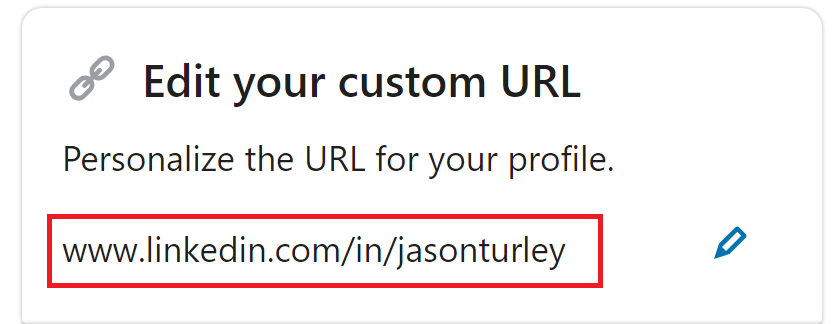
Resources
Enable creator mode
In 2022 LinkedIn introduced “Creator Mode”, a free setting for people who regularly create content on the site. It changes the layout of your profile and lets you add up to five topics to show others what kind of things you talk about the most.
Creator mode also enables you to do live streams, audio content and publish newsletters. If those features interest you, it may be worth checking out.
I don’t think this feature is necessary, but I have it enabled since I am a content creator.
Resources
Recommendations
Having other people vouch for you can help build your credibility (social proof matters!). Recommendations from peers are nice, but recommendations from managers are more impactful.
Misc Advice
- Have others review your profile as well – at least one person in your industry and one person who isn’t.
- Fix any spelling and grammar mistakes.
- Be professional. Do not upload any rude or offensive content. Review LinkedIn’s community guidelines here.
Book a profile review session with me :)
If you’d like me to review your profile, you can book me here: https://topmate.io/jasonturley